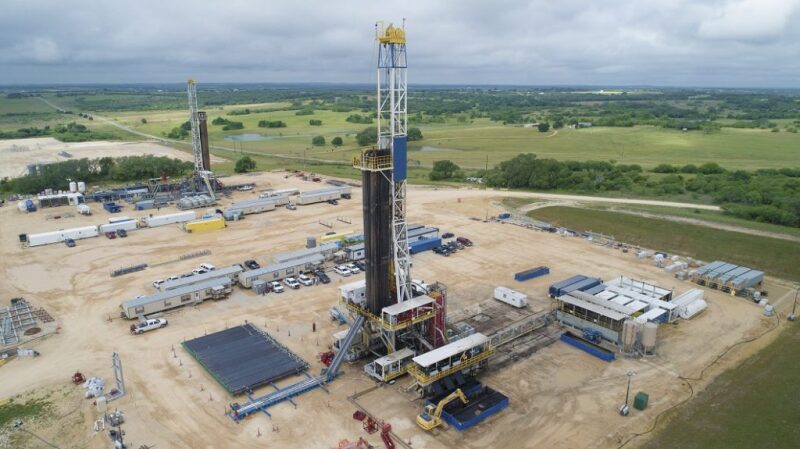ConocoPhillips is keeping the US upstream consolidation trend alive with a $17.1-billion all-stock acquisition of Marathon Oil Corp. Announced today, the deal adds more than 2 billion bbl of recoverable resources to ConocoPhillips' portfolio and includes $5.4 billion of Marathon's debt.
Marathon shareholders will receive 0.255 shares of ConocoPhillips common stock for each Marathon share held, representing nearly a 15% premium over the previous day's closing price.
The focal point of the transaction is on the Eagle Ford Shale where ConocoPhillips will become the largest producer in the play with a pro forma output of 400,000 BOE/D. Currently, EOG is the leading producer in the region, with an output of 300,000 BOE/D, according to Enverus Intelligence Research (EIR).
In addition, ConocoPhillips will double its Bakken Shale production to over 200,000 BOE/D. The acquisition also includes acreage in the Permian Basin's Delaware sub-basin and Marathon's LNG project in Equatorial Guinea.
ConocoPhillips highlighted that the deal adds 1,000 new drilling locations in the Eagle Ford, and it expects to identify at least 1,000 more untapped locations between the Bakken and Delaware assets.
ConocoPhillips CEO Ryan Lance described Marathon as a “perfect fit" and said it will bring to ConocoPhillips “a high-quality asset base with adjacencies to our own assets that will lead to a straightforward integration and meaningful synergies.”
ConocoPhillips expects to achieve $500 million in savings in the first year, with about half from redundancies in general and administrative costs, $150 million from lower operating and commercial costs, and the rest from reduced capital costs.
Andrew Dittmar, a principal analyst at EIR, pointed out that the deal breaks from other recent unconventional acquisitions targeting pure play producers, opting instead for one that holds a mixed portfolio of unconventional properties along with international assets.
“Conoco is leveraging its premium market valuation, which it shares with the majors, to strike a deal that will immediately boost its free cash flow profile and enhance its capital return program for investors. Combining with Marathon will boost Conoco’s market cap to above $150 billion, extending its lead as the largest independent producer and placing it broadly in the same scale as majors, above BP and behind Shell,” added Dittmar.
Lance told investors during a conference call with investors that ConocoPhillips will enhance the performance of Marathon's assets through technology and scale.
More specifically, ConocoPhillips shared ambitious plans to refracture many of Marathon’s older wells in the Eagle Ford play, identifying as many as 1,000 refrac candidates which could help sustain the producer's activity in the region for at least a decade.
“We’ve been implementing new refrac techniques across our existing Eagle Ford position that have expanded our refrac inventory at cost of supplies that compete with our Tier 1 opportunities—we’ll be doing the same on the Marathon acreage,” said Andy O’Brien, senior vice president of strategy, commercial, sustainability, and technology for ConocoPhillips.
ConocoPhillips executives noted that refracturing a horizontal well costs approximately 60 to 70% of what it takes to drill and complete a new well.
They added that Eagle Ford refracs could achieve a 60% increase in the original estimated ultimate recovery (EUR) of a well for a cost of supply ranging from the low to high $30s/bbl. This recovery boost is slightly down from the 75% increase in EUR ConocoPhillips reported in 2021 after completing 50 refracs over the previous 2 years. At that time, the company had identified up to 350 refrac candidates in the Eagle Ford and noted that it preferred mechanical isolation over bullhead or diverter-based refracs.
Refracs previously played a central role in an Eagle Ford acquisition in 2022 when Devon Energy paid $1.8 billion in cash for Validus Energy and its 350 untapped drilling locations and up to 150 “high-quality” refrac candidates.
ConocoPhillips also announced that upon closing the deal, expected by the fourth quarter, it will implement a $20-billion share buyback program over 3 years, with more than $7 billion in the first full year, based on recent share prices.


